
Lake Turkana: The Jade Sea of Kenya
Lake Turkana, often referred to as the Jade Sea, is a mesmerizing destination in Kenya. Situated in the northern part of the country, it is the world's largest permanent desert lake and the world's largest alkaline lake. Its striking turquoise waters contrast beautifully with the surrounding arid landscape, making it a visual marvel for any visitor. The lake is a UNESCO World Heritage Site, recognized for its rich biodiversity and unique geological features. It is home to a variety of wildlife, including Nile crocodiles, hippos, and numerous species of fish and birds. The surrounding region is also rich in archaeological sites, offering insights into early human prehistory. Visitors can explore the nearby Koobi Fora, which has yielded some of the most important fossil discoveries. For those seeking adventure, Lake Turkana offers a range of activities from bird watching and fishing to exploring the rugged terrain by foot or 4x4 vehicle. The local Turkana people, with their vibrant culture and traditional lifestyle, add another layer of richness to the experience. A visit to Lake Turkana is not just a trip to a beautiful destination, but a journey through time and nature.
Local tips in Lake Turkana
- Visit during the cooler months from June to September for a more comfortable experience.
- Bring plenty of water and sun protection as the area can get extremely hot and dry.
- Hire a local guide to explore the archaeological sites and learn about the rich history and culture.
- Stay at one of the eco-lodges around the lake for a sustainable and immersive experience.
- Respect the local customs and traditions of the Turkana people.
Lake Turkana: The Jade Sea of Kenya
Lake Turkana, often referred to as the Jade Sea, is a mesmerizing destination in Kenya. Situated in the northern part of the country, it is the world's largest permanent desert lake and the world's largest alkaline lake. Its striking turquoise waters contrast beautifully with the surrounding arid landscape, making it a visual marvel for any visitor. The lake is a UNESCO World Heritage Site, recognized for its rich biodiversity and unique geological features. It is home to a variety of wildlife, including Nile crocodiles, hippos, and numerous species of fish and birds. The surrounding region is also rich in archaeological sites, offering insights into early human prehistory. Visitors can explore the nearby Koobi Fora, which has yielded some of the most important fossil discoveries. For those seeking adventure, Lake Turkana offers a range of activities from bird watching and fishing to exploring the rugged terrain by foot or 4x4 vehicle. The local Turkana people, with their vibrant culture and traditional lifestyle, add another layer of richness to the experience. A visit to Lake Turkana is not just a trip to a beautiful destination, but a journey through time and nature.
When is the best time to go to Lake Turkana?
Iconic landmarks you can’t miss
Rusinga Islands
Explore the serene beauty of Rusinga Islands, a hidden gem in Lake Victoria, rich in culture and natural wonders waiting for adventurous travelers.
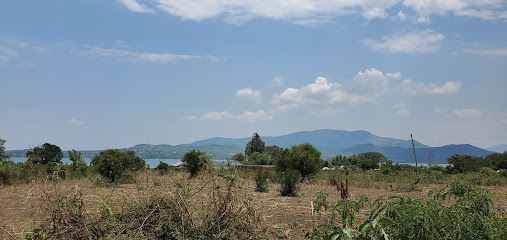
Eliye Springs Beach
Eliye Springs Beach: A serene escape with unspoiled landscapes and vibrant local culture along the shores of Lake Turkana.
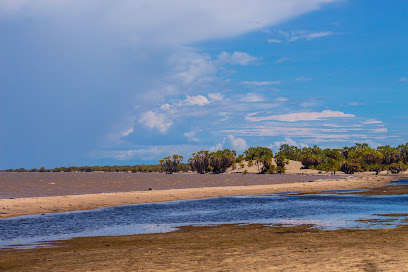
Turkana county
Discover the stunning landscapes and rich cultural heritage of Turkana County, Kenya's unique tourist attraction with unparalleled wildlife and local experiences.
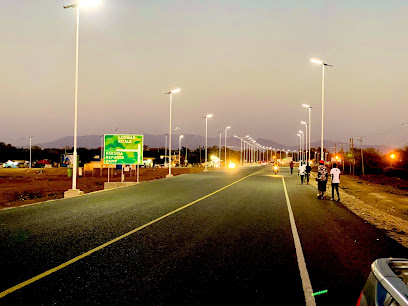
Lake Turkana Wind Power Station
Discover the Lake Turkana Wind Power Station, a marvel of renewable energy and stunning natural beauty in northern Kenya.
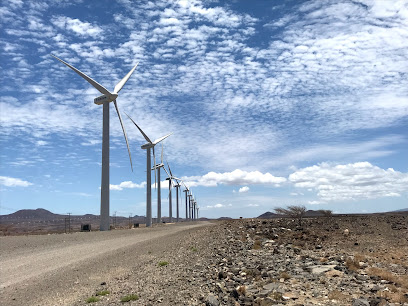
Central Island National park
Explore the volcanic beauty and rich biodiversity of Central Island National Park, a UNESCO World Heritage site nestled in Lake Turkana, Kenya.
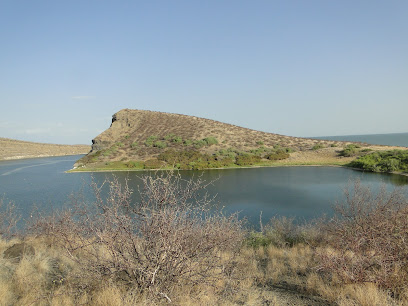
Unmissable attractions to see
Eliye Springs Resort
Experience the tranquil beauty and adventure of Eliye Springs Resort, a premier destination in Lodwar Township, perfect for relaxation and exploration.
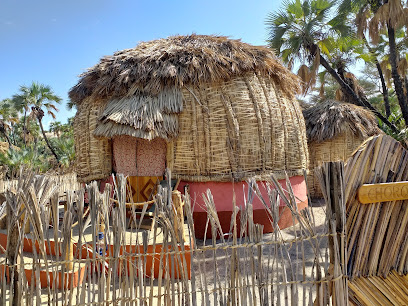
Loiyangalani Desert Museum
Explore the rich cultural heritage and stunning natural beauty of the Loiyangalani Desert Museum near Lake Turkana, a true gem of Kenya.
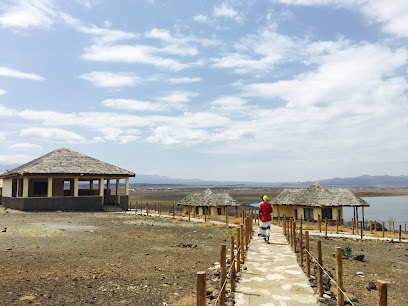
Jesus Hill
Experience the breathtaking views and serene atmosphere of Jesus Hill, a must-visit tourist attraction in Lodwar, Kenya, perfect for reflection and adventure.
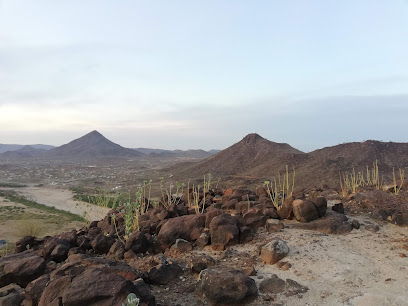
Nabuyaton volcano
Discover the stunning Nabuyaton Volcano, a national reserve in Kenya, featuring breathtaking landscapes and diverse wildlife for an unforgettable adventure.
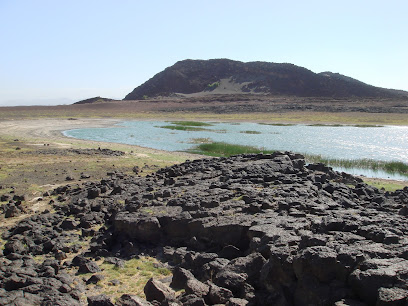
Turkana county
Explore the stunning landscapes and rich cultural heritage of Turkana County, a hidden gem in northern Kenya, offering adventure and breathtaking views.
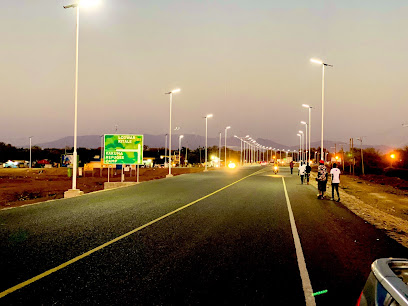
Marsabit-Lake Turkana Cultural Festival
Explore the Marsabit-Lake Turkana Cultural Festival, where vibrant traditions and captivating performances showcase Kenya's rich cultural heritage.
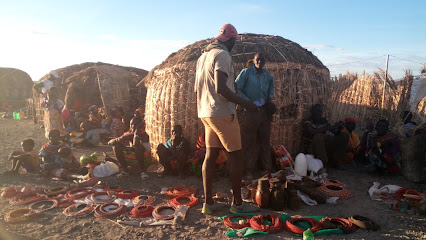
Eliye PalmBeach Ecolodge
Experience the serene beauty of Lake Turkana at Eliye PalmBeach Ecolodge, a tranquil campground perfect for relaxation and adventure.
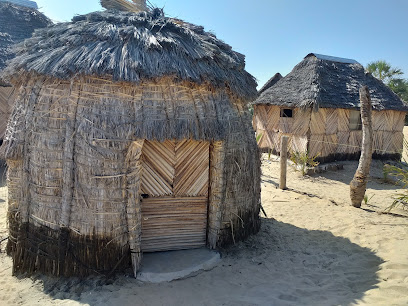
Lodwar
Explore the rich culture and breathtaking landscapes of Lodwar, a hidden gem in Kenya's Turkana County, perfect for adventurous travelers.
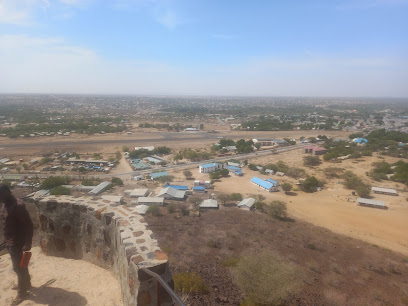
Kawalase Bridge
Discover the breathtaking views and rich culture at Kawalase Bridge in Lodwar, a captivating tourist attraction in Kenya's stunning landscape.
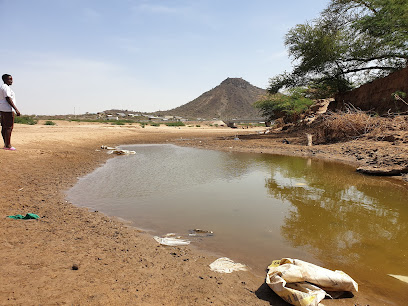
L. Turkana
Explore L. Turkana, Kenya's breathtaking lake, where vibrant culture meets stunning landscapes and thrilling adventures await.
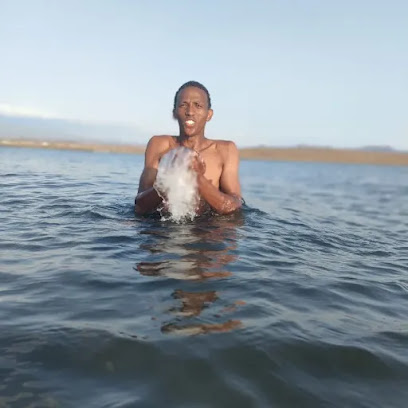
Kenya wildlife station - Kalokol
Experience the breathtaking wildlife and captivating landscapes at Kalokol Wildlife Park, a hidden gem in Kenya's natural paradise.
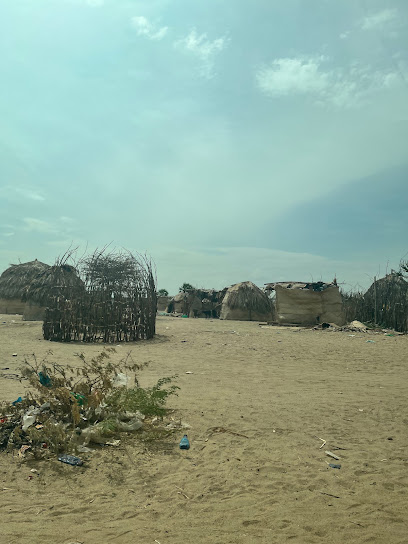
Central Island National park
Explore Central Island National Park, a stunning volcanic haven in Lake Turkana, rich in wildlife and breathtaking landscapes, perfect for adventurous travelers.
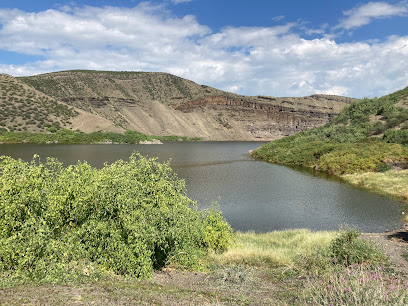
Suguta Valley Turkana
Discover the breathtaking landscapes and rich cultural heritage of Suguta Valley, a natural preserve in Kenya's Turkana region.
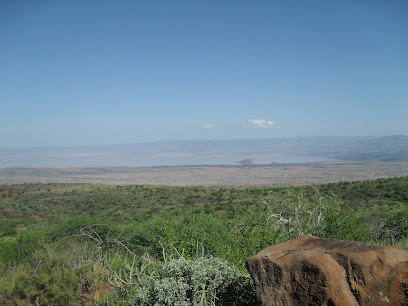
South Island National Park
Experience the serenity of South Island National Park, a wildlife sanctuary near Lake Turkana, perfect for nature lovers and adventure seekers alike.
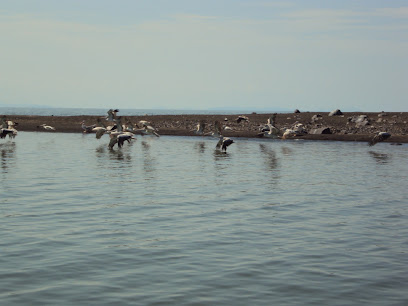
LODWAR CONE
Explore the stunning landscapes and rich culture of Lodwar Cone, a hiker's paradise in Kenya, perfect for adventure seekers and nature lovers.
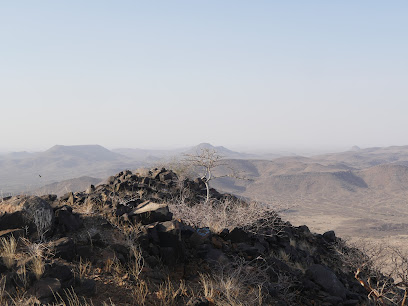
Markets, malls and hidden boutiques
Lake Turkana Business Center
Explore the vibrant Lake Turkana Business Center in Lodwar for a unique shopping experience infused with local culture and stunning lake views.
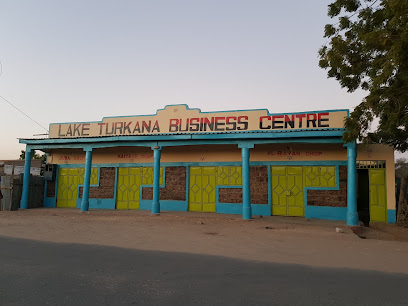
Morning Dew Shop
Experience local culture and unique crafts at Morning Dew Shop, a charming destination in Lodwar Township, Turkana, Kenya.

Bright Fashions Boutique
Explore the vibrant styles and unique clothing at Bright Fashions Boutique in Lodwar, where local culture meets contemporary fashion.
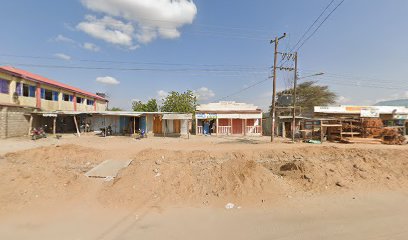
TURKANA WOMEN'S CONFERENCE CENTRE
Discover the vibrant culture of the Turkana people at the Women's Conference Centre in Lodwar Township, a hub for community and local craftsmanship.

MATRONICS PHONE & ACCESSORIES SHOP
Explore Matronics in Kalokol for top-notch electronics and accessories to enhance your travel experience in Kenya.

ONE 2 ONE TECHNOLOGIES
Explore the latest in technology at ONE 2 ONE TECHNOLOGIES, Kalokol's premier electronics store, perfect for travelers seeking top gadgets.
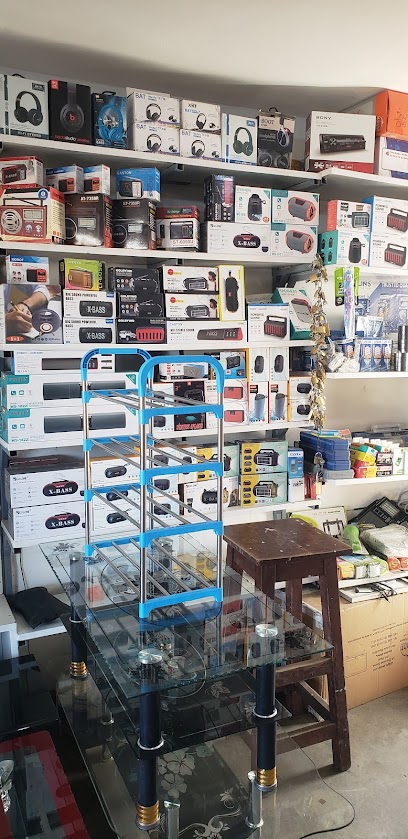
Turkana Fashion - School uniforms and hardware
Explore the vibrant styles of Turkana Fashion in Lodwar, your destination for quality school uniforms and authentic local attire.
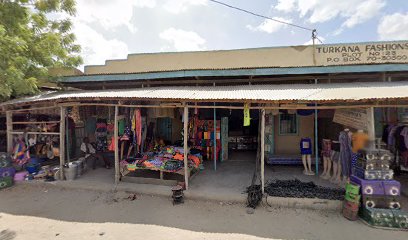
Manaal communications Ltd
Explore Kalokol with confidence by visiting Manaal Communications Ltd, your trusted cell phone store for all mobile needs.
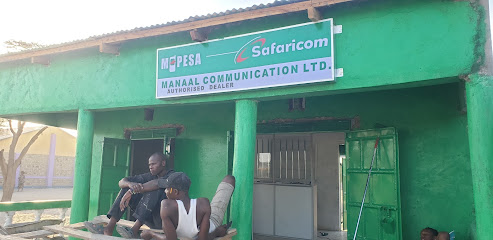
Torit General Store Wholesale & Retail Commodines
Explore the authentic local experience at Torit General Store in Kalokol, where everyday commodities meet vibrant culture and community.
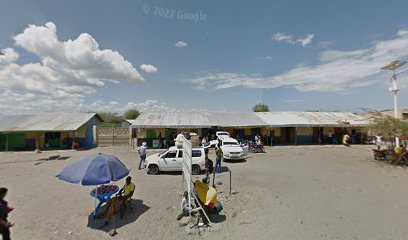
Neema Retail Shop
Explore the essence of Kalokol at Neema Retail Shop, your gateway to local treasures and community spirit in the heart of Kenya.

KALOKOL
Explore Kalokol, a charming convenience store in Northern Kenya, offering essential supplies and a warm atmosphere for travelers.

Nasrullahi shop kalokol
Experience the vibrant culture of Kalokol at Nasrullahi Shop, a treasure trove of local crafts and traditional products.
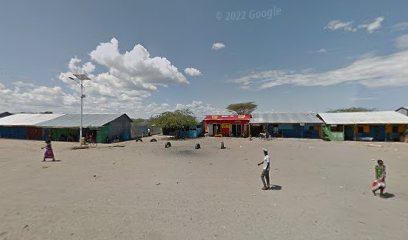
Kalokol
Explore Kalokol's vibrant general store, your gateway to local culture and unique souvenirs in the heart of Kenya.

Msanii Selection
Experience the vibrant blend of traditional and contemporary Kenyan fashion at Msanii Selection, a must-visit clothing store in Kalokol.
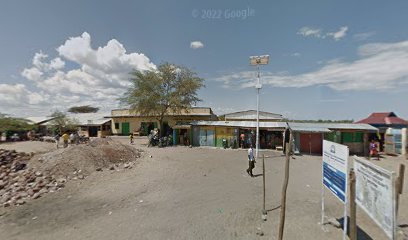
Dan Electronics
Explore the latest electronics at Dan Electronics in Kalokol - your premier destination for cutting-edge gadgets and exceptional service.
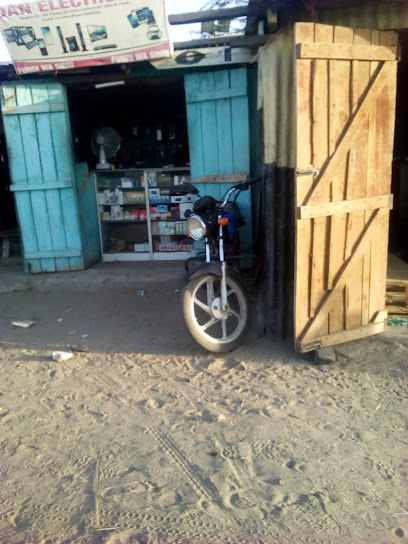
Essential bars & hidden hideouts
Olive Pub
Discover the vibrant atmosphere of Olive Pub in Lodwar, where local charm meets refreshing drinks and good company.
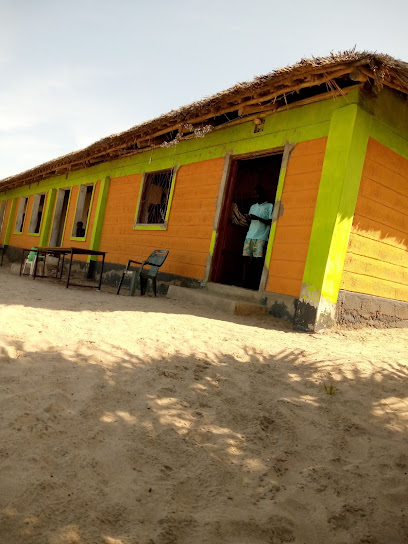
The Lounge
Discover the flavors of Lodwar at The Lounge, a grill restaurant offering an unforgettable dining experience with local and grilled specialties.

Members Club-Lokitaung
Discover the culinary charm of Members Club-Lokitaung, where delicious grilled dishes and a vibrant atmosphere await tourists seeking authentic local flavors.
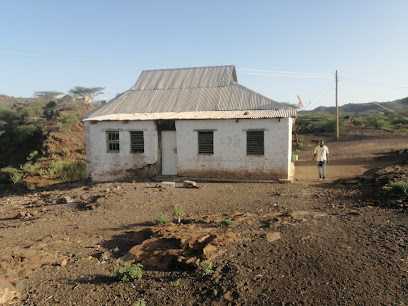
Najuast Resort
Experience the culinary delights of Najuast Resort in Kalokol, where breathtaking views and exceptional service create an unforgettable dining experience.
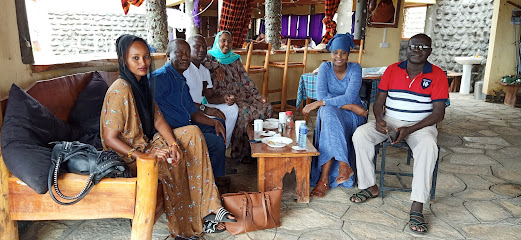
LODWAR CLUB
Experience the vibrant nightlife at Lodwar Club, a local favorite for authentic drinks and lively atmosphere in the heart of Lodwar.

Last Drop Sports Bar
Discover the vibrant atmosphere of Last Drop Sports Bar in Lodwar, where local culture and lively ambiance meet for an unforgettable experience.
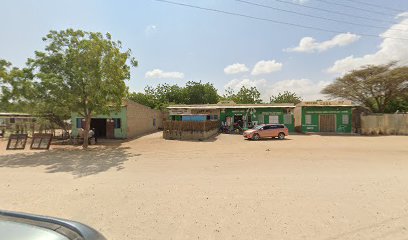
Cold Drinks Hotel
Experience the delightful flavors and refreshing drinks at Cold Drinks Hotel, a must-visit restaurant in the heart of Loiyangalani.
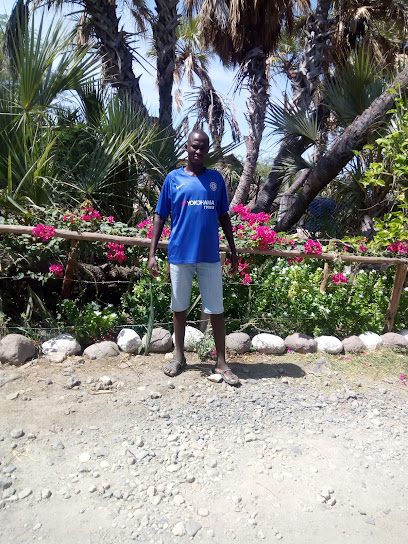
Joloya turkana
Experience the vibrant nightlife and local culture at Joloya Turkana, a must-visit bar in Lodwar, Kenya, for an unforgettable evening.
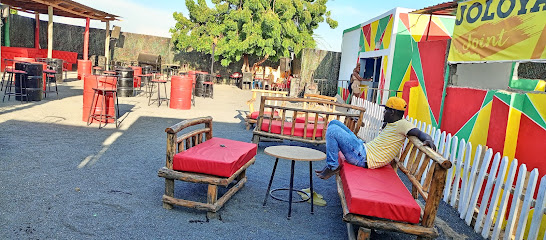
Kuraz wines and spirit
Experience the local flavors at Kuraz Wines and Spirit, Lokitaung’s premier bar for crafted wines and spirits, where community meets culture.

Ndush pub
Experience the charm of Ndush Pub in Lodwar, a wine bar that offers an exquisite selection of wines in a cozy, inviting atmosphere perfect for relaxation.
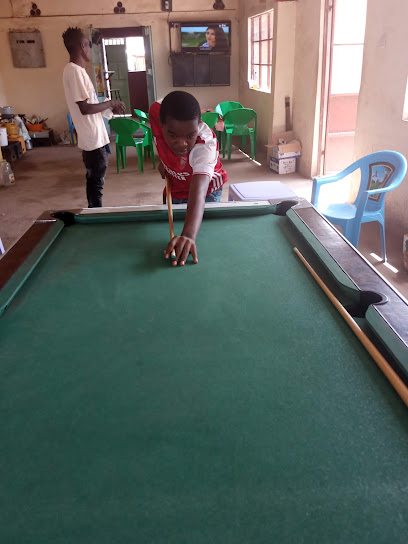
Ato's Bar and Lounge
Experience the vibrant flavors of Lodwar at Ato's Bar and Lounge, where delectable grilled dishes meet a lively social atmosphere.
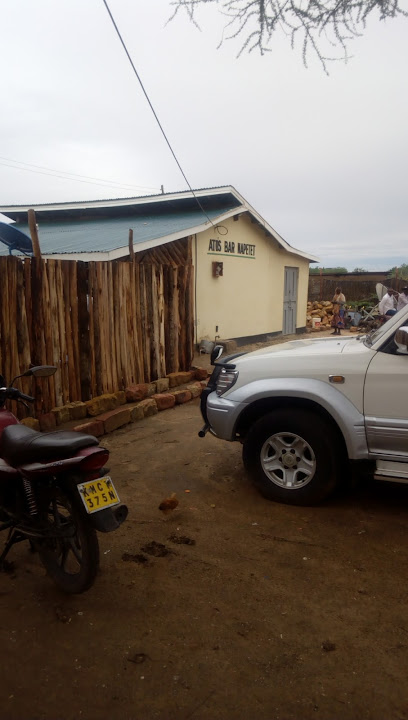
GREEN SHELTERS BAR
Experience the vibrant culture and refreshing drinks at Green Shelters Bar in Loiyangalani, where every sip tells a story.

The Planet Pub For Beer/Wine & Spirits
Experience the vibrant atmosphere of The Planet Pub in Kalokol – a local bar offering a fantastic selection of beers and spirits.
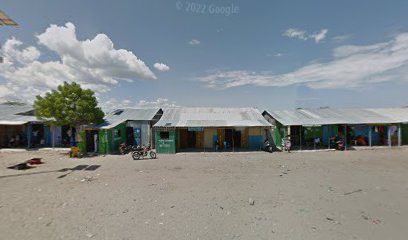
Korolle Bar
Experience the vibrant atmosphere and stunning views at Korolle Bar in Loiyangalani, a perfect spot for relaxation and local culture.

Local Phrases about Lake Turkana
-
- HelloEkir
[eh-keer] - GoodbyeEro
[eh-roh] - YesEe
[ee] - NoAe
[ay] - Please/You're welcomeAwaro
[ah-wah-roh] - Thank youEkirwo
[eh-keer-woh] - Excuse me/SorryEto
[eh-toh] - How are you?Ekaroni?
[eh-kah-roh-nee] - Fine. And you?Emet. Ene?
[eh-met. eh-neh] - Do you speak English?Nakwano ith Engerish?
[nah-kwah-noh eeth Eng-er-ish] - I don't understandAkarin
[ah-kah-reen]
- HelloEkir
-
- I'd like to see the menu, pleaseNakwano e menu, waro
[nah-kwah-noh eh meh-noo, wah-roh] - I don't eat meatAkira irik
[ah-kee-rah ee-reek] - Cheers!Erum
[eh-room] - I would like to pay, pleaseNakwano e tich, waro
[nah-kwah-noh eh teech, wah-roh]
- I'd like to see the menu, pleaseNakwano e menu, waro
-
- Help!Erum
[eh-room] - Go away!Awo
[ah-woh] - Call the Police!Ng'atani e Polis?
[ngah-tah-nee eh poh-lees] - Call a doctor!Ng'atani e dokta?
[ngah-tah-nee eh dohk-tah] - I'm lostAkarin amee
[ah-kah-reen ah-meh] - I'm illAkarin ekama
[ah-kah-reen eh-kah-mah]
- Help!Erum
-
- I'd like to buy...Nakwano e...
[nah-kwah-noh eh...] - I'm just lookingApar
[ah-pahr] - How much is it?Ng'atani?
[ngah-tah-nee] - That's too expensiveNakutwa
[nah-koot-wah] - Can you lower the price?Ng'atani e saa?
[ngah-tah-nee eh sah]
- I'd like to buy...Nakwano e...
-
- What time is it?Ng'atani e tik?
[ngah-tah-nee eh teek] - It's one o'clockNakutwa ekadong'
[nah-koot-wah eh-kah-dohng] - Half past (10)Kadong' elasait
[kah-dohng eh-lah-sight] - MorningLomoruk
[loh-moh-rook] - AfternoonKolok
[koh-lohk] - EveningLolondoi
[loh-lohn-doy] - YesterdayKalopong'
[kah-loh-pohng] - TodayLokuruk
[loh-koo-rook] - TomorrowLolomiruk
[loh-loh-mee-rook] - 1Ane
[ah-neh] - 2Anderi
[ahn-deh-ree] - 3Anekata
[ah-neh-kah-tah] - 4Anekwor
[ah-neh-kwohr] - 5Anekoruok
[ah-neh-koh-roo-ohk] - 6Anekopong'
[ah-neh-koh-pohng] - 7Aneyok
[ah-neh-yohk] - 8Anekonye
[ah-neh-koh-nyeh] - 9Anekwany
[ah-neh-kwah-ny] - 10Anekwenda
[ah-neh-kwehn-dah]
- What time is it?Ng'atani e tik?
-
- Where's a/the...?Nakwano e...
[nah-kwah-noh eh...] - What's the address?Nakwano e lono?
[nah-kwah-noh eh loh-noh] - Can you show me (on the map)?Ng'atani e kawar (e map)?
[ngah-tah-nee eh kah-wahr (eh map)] - When's the next (bus)?Ikwano e ngingir?
[ee-kwah-noh eh ng-ing-eer] - A ticket (to ....)E tich (kwa ....)
[eh teech (kwah)]
- Where's a/the...?Nakwano e...
History of Lake Turkana
-
Lake Turkana, often referred to as the 'Jade Sea' due to its striking turquoise color, is the world's largest permanent desert lake and the world's largest alkaline lake. Situated in Kenya's Rift Valley, it stretches over 250 kilometers in length and spans an area of approximately 6,405 square kilometers.
-
Lake Turkana is a key region in the study of human evolution. The area, particularly the Koobi Fora region, has yielded numerous fossils, including the famous 'Turkana Boy', a nearly complete skeleton of a Homo erectus youth dating back 1.6 million years. These findings have provided invaluable insights into the early stages of human development.
-
During the Bronze Age, around 2500 to 1500 BCE, the Kingdom of Kerma, located in present-day Sudan, extended its influence into the Lake Turkana region. Archaeological evidence suggests interactions between the Kerma civilization and the indigenous peoples of Turkana, indicating early trade routes and cultural exchanges.
-
In the first millennium BCE, Cushitic-speaking peoples migrated into the Lake Turkana basin from the Ethiopian highlands. They brought with them advanced agricultural techniques and pastoralism, which significantly impacted the socio-economic landscape of the region and contributed to the development of complex societies.
-
The Turkana people, for whom the lake is named, have inhabited the region for centuries. Traditionally pastoralists, the Turkana have adapted to the harsh desert environment, relying on their livestock and the resources provided by the lake. Their rich cultural heritage includes distinctive music, dance, and elaborate beadwork.
-
The first European to document Lake Turkana was Count Sámuel Teleki, a Hungarian explorer, in 1888. Accompanied by Austrian explorer Ludwig von Höhnel, Teleki named the lake 'Lake Rudolf' after the Crown Prince of Austria. Their expedition marked the beginning of increased European interest and exploration in the region.
-
In 1997, Lake Turkana was designated a UNESCO World Heritage Site, recognizing its outstanding universal value. The site includes three national parks: Sibiloi National Park, Central Island National Park, and South Island National Park. These parks are crucial for the conservation of the lake's unique biodiversity and the protection of archaeological sites.
-
Lake Turkana faces numerous environmental challenges, including fluctuating water levels due to climate change and upstream dam projects on the Omo River in Ethiopia. These changes threaten the delicate ecosystem and the livelihoods of the communities dependent on the lake. Conservation efforts are ongoing to address these critical issues.
-
Today, Lake Turkana continues to be of great cultural and economic significance. It supports local fisheries, provides a crucial water source, and attracts tourists seeking adventure and cultural experiences. The lake remains a symbol of resilience and adaptation for the Turkana people and the broader Kenyan community.
Lake Turkana Essentials
-
Lake Turkana is located in the northern part of Kenya. The nearest major airport is Jomo Kenyatta International Airport in Nairobi. From Nairobi, you can take a domestic flight to Lodwar or Kalokol, which are the primary gateways to Lake Turkana. Alternatively, you can take a long-distance bus or hire a private vehicle for a more adventurous road trip. The drive from Nairobi to Lake Turkana can take approximately 12-15 hours, depending on the route and road conditions.
-
Once at Lake Turkana, transportation options are relatively limited. Hiring a 4x4 vehicle is highly recommended due to the rough terrain. Local taxis and motorbikes (boda-bodas) are available in some areas, but they may not be reliable for long distances. For short distances, walking can be a feasible option, especially in the towns of Lodwar and Kalokol. Boat tours are also available for exploring the lake itself.
-
The official currency in Kenya is the Kenyan Shilling (KES). Credit cards are accepted in some hotels and larger establishments, but it is advisable to carry cash, especially in remote areas around Lake Turkana. ATMs are available in Lodwar, but they can be scarce in smaller towns. It's a good idea to withdraw sufficient cash before heading to more remote locations.
-
Lake Turkana is generally safe for tourists, but it is important to take standard precautions. Avoid traveling at night and stay aware of your surroundings. The northern regions, including areas near the Ethiopia-South Sudan border, can be unstable, so it's advisable to stay updated on current travel advisories. In towns like Lodwar, petty theft can occur, so keep your belongings secure and avoid displaying valuables.
-
In case of an emergency, dial 999 for immediate assistance. There are medical facilities in Lodwar, but for more serious conditions, you may need to be evacuated to Nairobi. It is highly recommended to have comprehensive travel insurance that covers medical emergencies. Pharmacies are available in larger towns, but it is wise to carry basic medications and a first aid kit.
-
Fashion: Do dress modestly, especially in villages and religious sites. Avoid wearing revealing clothing. Religion: Do respect local customs and traditions. Always ask for permission before taking photographs of people or religious sites. Public Transport: Do be polite and respectful. Don't expect strict adherence to schedules. Greetings: Do greet people with a handshake. A smile and a nod are also appreciated. Eating & Drinking: Do try local delicacies and accept food offerings graciously. Don't refuse hospitality, as it is considered impolite.
-
To experience Lake Turkana like a local, consider visiting local markets to buy fresh produce and traditional goods. Engage with the locals, who are often friendly and willing to share stories about their culture and history. Don’t miss the annual Lake Turkana Cultural Festival, which showcases the rich cultural diversity of the region. For a unique experience, take a boat tour to Central Island National Park, known for its volcanic craters and flamingo-filled lakes.
Nearby Cities to Lake Turkana
-
Things To Do in Kitale
-
Things To Do in Arba Minch
-
Things To Do in Mbale
-
Things To Do in Eldoret
-
Things To Do in Lira
-
Things To Do in Gulu
-
Things To Do in Kisumu
-
Things To Do in Nakuru
-
Things To Do in Awasa
-
Things To Do in Jinja
-
Things To Do in Naivasha
-
Things To Do in Kampala
-
Things To Do in Nairobi
-
Things To Do in Entebbe
-
Things To Do in Arua












